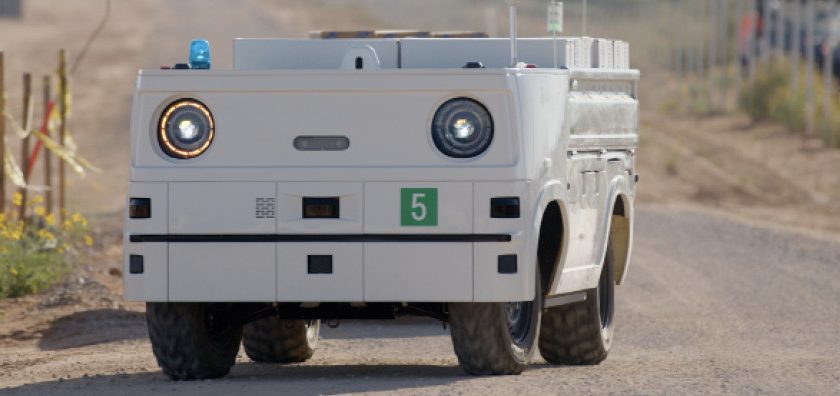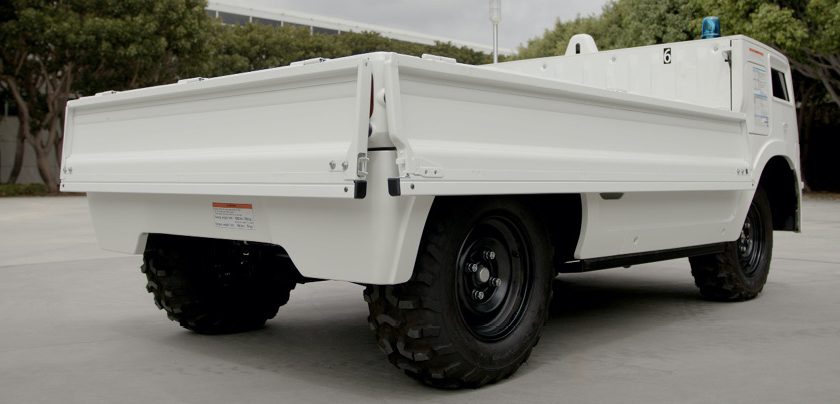Overland Park, Kan.-based engineering and construction giant Black & Veatch recently deployed a Honda autonomous work vehicle (AWV) prototype for material transfer, water delivery and towing duty at a New Mexico solar farm construction site. The all-electric vehicle employs a suite of sensors to operate autonomously, using GPS for location; radar and LIDAR for obstacle detection; and, stereoscopic (3D) cameras for remote monitoring. It can also be operated by remote control.
“Our pursuit of construction innovation and safety on job sites has led us to this relationship with Honda,” says Black & Veatch Global Power President Mario Azar. “With our leading market position in solar power, testing of this autonomous vehicle aligns with our focus on advancing the industry through new and innovative ways to work at project sites.”

“We believe the vehicle has the potential to bring greater efficiencies, higher levels of safety and better environmental performance to the construction industry, and to other industries seeking an autonomous off-road solution,” adds Honda AWV U.S. Project Lead Kenton Williams.
The 1,000-acre solar farm parcel enabled the manufacturer to demonstrate AWV performance in a large-scale construction environment. With solar panels laid out in a grid pattern at regular intervals, the site proved ideal for testing the vehicle’s ability to navigate precise points along a pre-set route. Honda produced a high-definition map that allowed Black & Veatch operators to precisely set start and stop points for multiple Honda AWVs using a cloud-based app interface that runs on tablets and PCs. The vehicles successfully delivered materials and supplies along assigned routes and stopped within centimeters of pre-set points.
The field test demonstrated the viability of the Honda AWV battery system to support energy-intensive sensors and provide vehicle propulsion while operating up to eight hours in a high-temperature environment. The vehicles carried payloads of nearly 900 lbs. and towed a trailer bearing a load exceeding 1,600 lbs.
Based on the capabilities observed in the month-long New Mexico deployment, Honda believes the AWVs might provide a wide range of services to a variety of industries that need a rugged off-road autonomous solution, especially where workforce constraints and safety concerns make other solutions impractical. The company has not announced commercialization plans for the vehicles, but will continue to advance its autonomous platform through field testing. Inquiries on prospective test deployments can be directed to [email protected].
At 1,590 lbs., the Honda autonomous work vehicle is 9.5-ft. long, 4-ft. 8-in. high and just under 5-ft. wide. It can operate continuously up to six hours on a fully charged battery.
